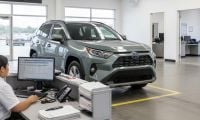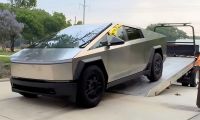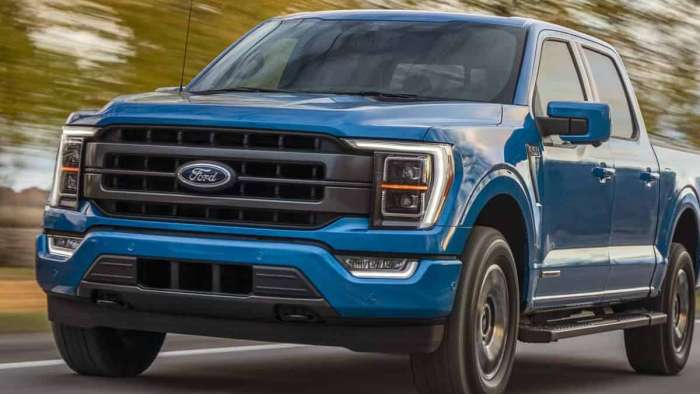 Major automotive manufacturers, led by Ford Motor Co., continue to feel the effects of the ongoing computer chip shortage. The shortage threatens popular models like Ford's F-150, the market-leading pickup, and its sporty Mustang
Major automotive manufacturers, led by Ford Motor Co., continue to feel the effects of the ongoing computer chip shortage. The shortage threatens popular models like Ford's F-150, the market-leading pickup, and its sporty Mustang
Chip Shortages Shuts Plants
Because of the shortage, the downtime that has affected Ford plants from Oakville, Ontario to Kansas City continues. Not only has the shortage caused downtime on the F-150 assembly line, but it has also idled the assembly lines that produce the Ford Explorer, Lincoln Aviator, Ford Edge, and Lincoln Nautilus, according to the trade paper Automotive News.
On the commercial side, the Ford Transit has been affected, as have Super Duty models. In other words, just about every model that rolls off of Ford's assembly lines. A top Ford official has termed the chip shortage the company's "greatest supply shock."
Ford could have major success right now 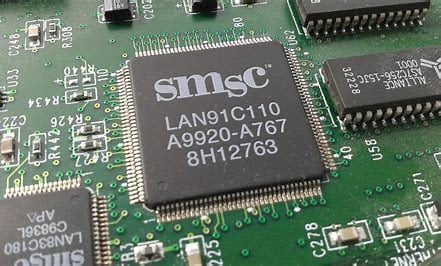
Stellantis, created by the merger of Fiat-Chrysler Plymouth and the French PSA group, plans to lay off Jeep workers to balance things while Hyundai is readjusting its plans. The Stellantis shutdown will likely last well into May.
Mercedes-Benz Adjusts Its Output
Mercedes-Benz also has plans to adjust its output in Germany. The automaker said in a statement that it would stop production at two plants. "The current worldwide supply shortage in certain semiconductor components affected deliveries in the first quarter." The automaker fully expects shortages to affect its sales in the current quarter. Daimler, the parent of Mercedes-Benz, expects to have "some recovery in the second and third quarter," the automaker said earlier this month.
According to AutoWeek, part of the group that publishes Automotive News reported that Jaguar Land Rover plans to halt production at two of its United Kingdom sites with no restart date indicated. The automaker has no plans to stop production at its main plant at Solihull.
The chip shortage has automakers across the industry planning for more downtime.
The chip shortage is no respecter of location. Though Asia hosts some significant foundry sites, the auto industry in that region continues to see shortages. China, for example, has felt the pain of chip shortages. According to AutoWeek, the shortages come as the China consumer sector has started to rebound.
As Torque News noted in a story earlier this week, the chip shortage will likely be a long-term issue, lasting well into the third or fourth quarter of this year. Ultimately, the cost of the semiconductor shortage to the industry – as a whole – may be over $60 billion. This figure sounds apocryphal, but it isn't. For example, Ford plans to idle five plants. The automaker estimated that it would cost at least $2 billion through the end of this quarter. It made no estimates beyond that period.
Chip shortage has many causes including some that you may not think about.
' Excess Capacity' Was Illusory
As the Torque News stories have indicated, foundry lines – chip factories -- seemed to have "excess capacity," which resulted from last year's shutdown of the auto industry as the pandemic wreaked havoc among the automakers. The auto industry was down for at least two months, starting last March. Semiconductor executives looked at their production lines, and they found that the production space that the auto industry had taken up was now unused. So, the semiconductor industry turned the "excess capacity" into profitable chips incompatible with vehicles. Both the semiconductor and the auto industry were caught flat-footed by the rebounding automotive economy the world over.
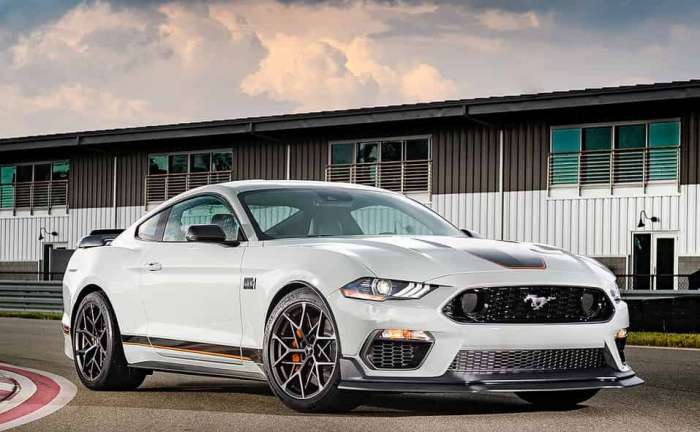
Instead of meeting the need for the vehicle industry, the semiconductor industry has doubled down and used every bit of the "excess capacity" that it supposed was available last year. Yes, semiconductor makers have indicated they would add capacity for chips that the auto industry needs. But, it will take months before that added capacity has an impact. In other words, it will cost you more to buy a vehicle.
Indeed, this situation couldn't have happened at a worse time. Just as the vehicle industry is taking off, there are not enough chips to build new vehicles. According to AutoWeek, this will only get worse as the economy gets rolling. As my colleague Jimmy Dinsmore notes, Ford was off to a great start until this shortage occurred.
It means that results will be flat for the industry until late this model year – if not next. Eventually, it will catch up, but now it is anyone's guess when it will happen.
Similar Situations Across The Industry
Daimler, in its quarterly statement, seems to sum up things well for the whole industry:
"Daimler expects a gradual normalization of economic conditions in the important markets," the automaker said in its quarterly statement. "The company assumes that the world economy will be able to recover from the pandemic-related weakness of the year 2020, aided by the increasing availability of effective vaccines, among other things. Based on the expected market development and the current assessments of the divisions, Daimler continues to anticipate Group unit sales, revenues, and EBIT in 2021 to be significantly above the prior year's level."
Marc Stern has been an automotive writer since 1971 when an otherwise normal news editor said, "You're our new car editor," and dumped about 27 pounds of auto stuff on my desk. I was in heaven as I have been a gearhead from my early days. As a teen, I spent the usual number of misspent hours hanging out at gas stations Shell and Texaco (a big thing in my youth) and working on cars. From there on, it was a straight line to my first column for the paper, "You Auto Know," an enterprise that I handled faithfully for 32 years. Not too many people know that I also handled computer documentation for a good part of my living while writing YAN. My best writing, though, was always in cars. My work has appeared in venues including Popular Mechanics, Mechanix Illustrated, AutoWeek, SuperStock, Trailer Life, Old Cars Weekly, Special Interest Autos, and others. You can follow me on: Twitter or Facebook.
Set as google preferred source







